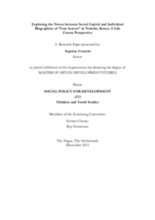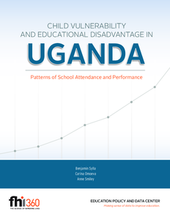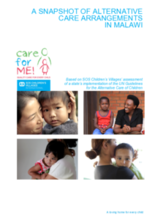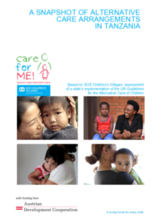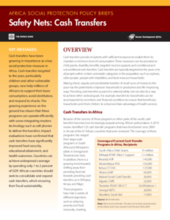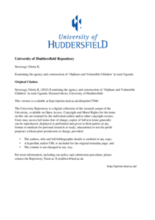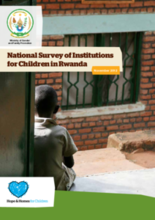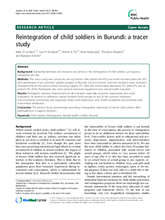Displaying 511 - 520 of 665
This study aims to determine the prevalence of maltreatment experienced by institutionalized children prior to their admission to Charitable Children's Institutions (orphanages) in western Kenya, and to describe their socio-demographic characteris
Employing a life course perspective and drawing upon care leavers' stories, along with focus group discussions and views from staff, this paper explores the concept of social capital and the ways in which this influences their lives before care, in care and after care.
This paper analyzes the extent to which official government “child vulnerability” indicators are associated with two important components of educational disadvantage: school enrollment and sixth grade learning outcomes in Uganda.
This report from SOS Children’s Villages assesses Malawi’s compliance with, and implementation of, the UN Guidelines on the Alternative Care of Children.
This report and research conducted by SOS Children’s Villages reviews alternative care arrangements in Tanzania.
In this paper, the author argues that the response to the orphan crisis in sub-Saharan Africa has focused mainly on mobilizing and distributing material resources to households with orphans. Only a few anthropologists have interrogated the frameworks and values on which the projects for orphans are based. The paper provides an analysis of the trends in foster-care research in Africa and the author suggests that current ethnographic data on foster-care practices do not adequately reflect the changing context of fostering in that continent.
This policy brief from the World Bank provides an overview of cash transfers in African countries.
Focussing on Sheema district in rural Uganda, this study sought to give voice to ‘OVC’ and use their lived experiences to develop a robust framework of care and support.
Hope and Homes for Children, in partnership with the Ministry of Gender and Family Promotion (MIGEPROF), has conducted a national survey of all institutions for children in Rwanda to obtain an accurate picture of the current institutional system and the children living within it which can be used to inform decision-making regarding the implementation of the reform strategy and provide a baseline against which progress can be measured in the future.
This study assesses reintegration trajectories of child soldiers in Burundi several years after demobilization. It looks broadly at socioeconomic and mental health indicators of a large group of former child soldiers and never recruited peers, both of who participated in an economic support program.

